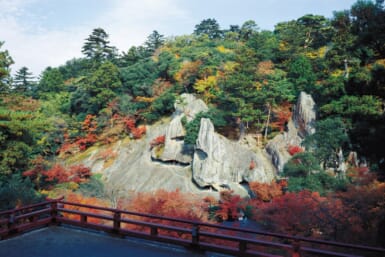Well, it’s official. Some time in the middle of the next century, Japan as we know it will cease to be. More specifically, tine Japanese (as we know them) will cease to be.
The indigenous birthrate has fallen below the magic 1.8 number necessary to keep enough bodies on life’s treadmill. Little spaces will begin to appear on the assembly line — each representing large blocs of students, customers, marriage prospects, employees and taxpayers. Japan is no longer able to populate itself at current levels.
Small towns in the countryside will dose first as the sturdy few flock to the cities for the comfort of crowds. Empty places are strange.
(As to crowds, I can remember when Narita International Airport opened. We happened to be out there during its first week of operation. I thought it was already crowded, but I overheard two guys talking about how lonely they felt because “the place is so empty”)
The country wall gradually empty. It may not be noticeable at first — a two-hour wait in line will become an hour and a half, but when you’re rolling around on the ground, screaming in frustration and kicking your heels in the air, you lose track of time.
Soon the delightful coziness of the Yamanote Line during summer rush hours will become but a fond memory. Many of us will never again rub up against so many fellow humans with such gay abandon.
They could reduce the number of cars per train to three, and just run them every half hour, but it is a refinement that is no way guaranteed.
Imagine carrying a folding aluminum lawn chair to the four-way intersection outside Shibuya Station — the one where all traffic stops as the hordes push and shove their way across the streets — and setting up that chair in the middle.
Mighty relaxing, I can imagine, sitting there watching the twinkling lights and neon signs while the occasional stroller saunters past. That’s what we can look forward to.
Of course, nature abhors a vacuum. The big cities will fill up with (a) crows (those black, flying comedians the size of beagles) and (b) monkeys (the mountainside fools who spend a lot of time playing in the snow).
These creatures will increasingly occupy the city centers. It wouldn’t surprise me to see them shoulder to kneecap with members of the declining human population shopping for bargains.
The crows will be particularly adept at picking and choosing products on Ginza department store counters, while the monkeys will probably gravitate to the convenience stores where a premium is placed on grabbing and loading things in the arms.
Although it is fascinating to imagine what will happen as Japan runs out of people, it is probably more constructive to come up with suggestions for solving the problem.
Let’s see. Hmmmm. As far as I can see, wait. Hmmmm.
Well, I’ve given it a lot of thought. I even fell asleep there for awhile. It seems to me — now, this is just me talking — but it seems to me that having more babies is a workable starting point in solving the problem. More babies. Having them. More. There is a logical ring to it — sort of a cause-and-effect kind of thing. Having more babies.
Now I know that elements of social organization have to change — economic incentives must be in place for young couples of marriageable age, and young men must be banned from having their hair and eyebrows done in beauty parlors — but it’s all within reach.
This is not replacing the ozone hole or becoming a scratch golfer. This is just having more babies.
And if that happens, we need not go to the second solution. (You did not read this here. I will deny everything.) Kidnapping people from North Korea and bringing them here to fill up the towns and villages is an unmentionable idea.









_KRAACH-クリスタルバスソルト-385x257.jpg)